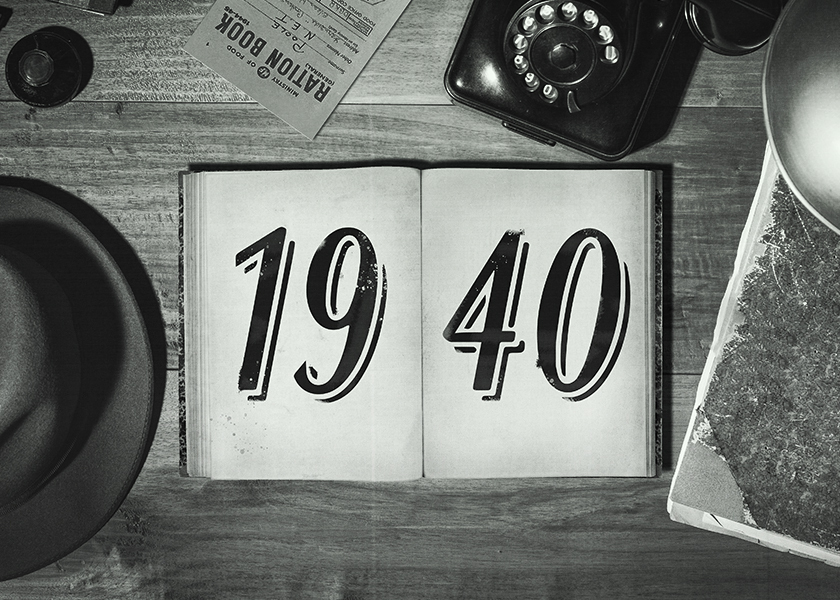- Home |
- Search Results |
- Books that shaped the 1940s

Next in our series on era-defining novels, we're travelling back to the 1940s. No decade – bar perhaps the 1910s – was more profoundly shaped by a single event, if you can reduce the Second World War to that. The first half of the decade was dominated by the bloodshed of total war; the second by the trauma left in its place.
Despite wartime paper rationing, manpower shortages and censorship, the demand for books never let up. People at home wanted to imagine what it was like on the frontlines, and soldiers on the frontlines wanted to be reminded of home (in fact, demand for battlefield reading material among soldiers was so great, that publishers in the US gave away almost 123 million books to soldiers between 1943 and 1946).
Also, just because there was a war on it didn't mean the social issues of the time – from racial conflict to class division – were put on hold. Far from it. As long as there was paper, ink and a functioning society, writers turned up to chronicle it.
So, without further ado, here are 20 books that helped shape the 1940s, from Richard Wright to Evelyn Waugh, Ayn Rand to Antoine de Saint-Exupéry.
“She wrote 'posh black' at a time when 'broke black' was in vogue" - Diana Evans
The Living is Easy by Dorothy West (1948)
This was one of very few novels published by black women in the 1940s. “[I was] the best-known unknown writer of the time,” Dorothy West once quipped – that time being the Harlem Renaissance and its aftermath.
But it struggled not because it portrayed the lives of black Americans, but because it covered the lives of rich black Americans. “She wrote 'posh black' at a time when 'broke black' was in vogue,” wrote Ordinary People author Diana Evans last August, “and this sits at the heart of her flickering obscurity, a myopia in mainstream culture that struggled to perceive blackness as anything more than one-dimensional.”
It tells the story of Cleo Judson, the patriarchy-busting daughter of Southern sharecroppers, determined to break into Boston's black elite. After marrying the “Black Banana King”, she manipulates her sisters into moving in with her to recreate her old family set up, while bringing up her daughter as a paragon of Boston's black bourgeoisie.
It is a fabulously witty, wise and nuanced satire of class elitism and the bitter legacy of slavery, as well as a feminist masterpiece that – really for the first time in commercial literature – acknowledged the emergence of an African-American middle class.
"[Brooks captured] the tiny incidents that plague the lives of the desperately poor, and the problems of common prejudice" - Richard Wright
Annie Allen by Gwendolyn Brooks (1949)
This profound and moving collection of poems won Gwendolyn Brooks the Pulitzer Prize in 1950, making her the first African American ever to win the award. And it makes this list because, while it is poetry, it is also a gripping narrative.
Split into three parts, the epic masterpiece portrays the life of Annie, an African-American girl growing up in Chicago, as she seeks self-awareness and spiritual fulfilment against the backdrop of the Second World War. It proved a convention-busting work of verse, including one of the most elegant evocations of carpe diem in poetry:
“Exhaust the little moment. Soon it dies.
And be it gash or gold it will not come
Again in this identical disguise.”
Among Brooks' biggest fans of the time was Richard Wright (see above), who admired her ability to conjure "the pathos of petty destinies, the whimper of the wounded, the tiny incidents that plague the lives of the desperately poor, and the problems of common prejudice."